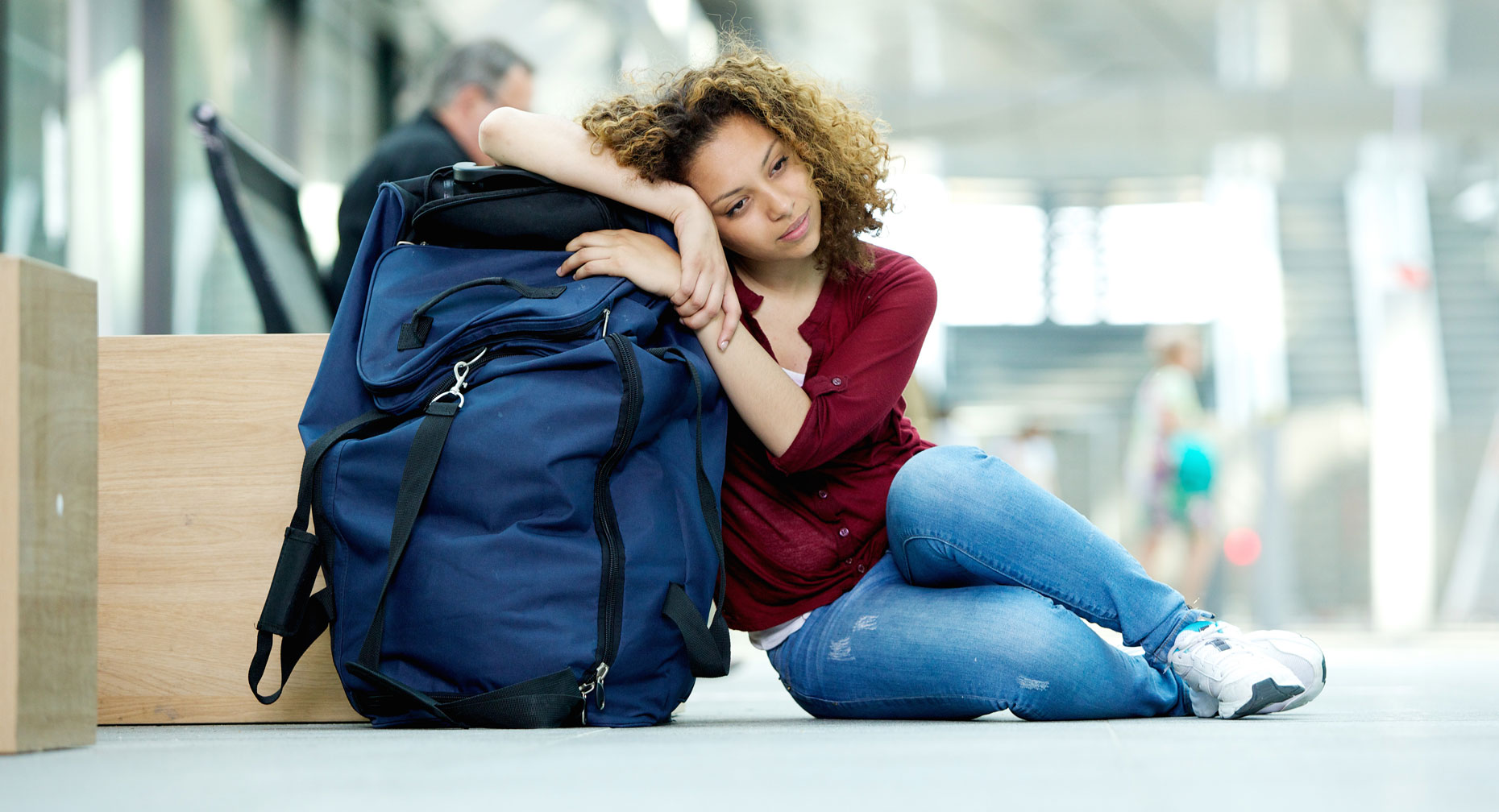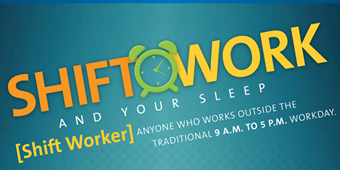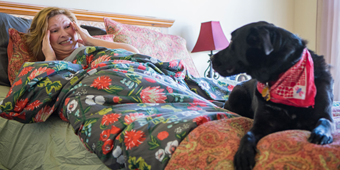Skip the Jet Lag — and Sleeplessness — of Travel

Find Your Perfect Match
Answer a few questions and we'll provide you with a list of primary care providers that best fit your needs.
If you’re traveling across multiple time zones, chances are you’ll have to deal with jet lag. A temporary sleep disorder, jet lag happens when your body’s internal clock is slow to catch up with your new location’s time. The more time zones you cross, the worse jet lag is likely to be. But there are simple steps you can take to minimize its effects.
When you first slumber in unfamiliar surroundings, studies show only half your brain is getting a good night’s rest because the other half is “on guard” in the new place.
Preventing and Dealing with Jet Lag
Before you go:
- Start healthy
Exercise, eat a balanced diet and get plenty of rest. - Reset your body clock
Shift your body clock by going to sleep 1-2 hours later for a few days if you are traveling westward, and head for bed 1-2 hours earlier if flying eastward. - Go toward the light
Seek out bright light in the evening if traveling westward, or in the morning if traveling eastward. - Take a break
If your schedule allows, plan a stopover. - Arrive in early evening
If you can, take a flight that arrives in the early evening, then stay up till 10 p.m. local time.
In the air:
- Dine lightly
Avoid large meals, alcohol and caffeine. - Stay hydrated
Drink plenty of water to combat the plane cabin’s dry air. - Get on your feet
Walk around on the plane to keep your mind and body stimulated, as well as protect against deep vein thrombosis (blood clot). - Keep it casual
Wear comfortable shoes and nonrestrictive clothing. - Snooze
If you can, sleep during long flights. An inflatable neck pillow and sleep mask may help.
After you arrive:
- Defer big decisions on day #1
Try to avoid situations that require critical decision-making, like important business meetings, on the first day after arrival. - Live like a local
Switch to your new location’s schedule as soon as possible. Eat meals appropriate to the local time, drink plenty of water and avoid excess caffeine or alcohol. - Seek the sun
Get as much sunlight as possible. Bright light is a powerful stimulant for regulating our biological clock so we adjust better to new surroundings. - Catch a quick nap
Snooze for 20-30 minutes to boost your energy without cutting into nighttime sleep.
Getting a Good Night’s Sleep on the Road
The first night in a new environment can lead to sleeplessness. Interestingly, when you first slumber in unfamiliar surroundings, studies show only half your brain is getting a good night’s rest because the other half is “on guard” in the new place. To help avoid that “first-night effect,” try these tips:
- Make it homey
Bring a family photo, favorite pillow or blanket to ease the strangeness of a new place. - Keep it calm and cool
Before you doze off, check your room for potential disturbances, like unwanted noises or light shining through drapes. And check the thermostat so your sleep isn’t disturbed by too-hot temperatures. - Get back-up
Ask the front desk to give you two wake-up calls, in case you sleep through the first one. - Consider a sleep aid
Prescription or over-the-counter medications can help manage short-term insomnia when traveling. Talk with your doctor first, as sleep meds can cause unwanted side effects. - Block that noise
Pack some inexpensive foam earplugs to muffle any unusual noises. Look for a pair that blocks 65 decibels or more. If you have room, bring a white noise machine, or use an app on your phone that produces soothing sounds. - Nix the nightcap
Tempting as it might be, too much alcohol can keep you from that deep sleep you need to feel refreshed. Limit yourself to no more than one or two drinks so you’ll feel sharp the next morning.
Find Your Perfect Match
Answer a few questions and we'll provide you with a list of primary care providers that best fit your needs.
Source: Center for Disease Control and Prevention; National Sleep Foundation; Current Biology




